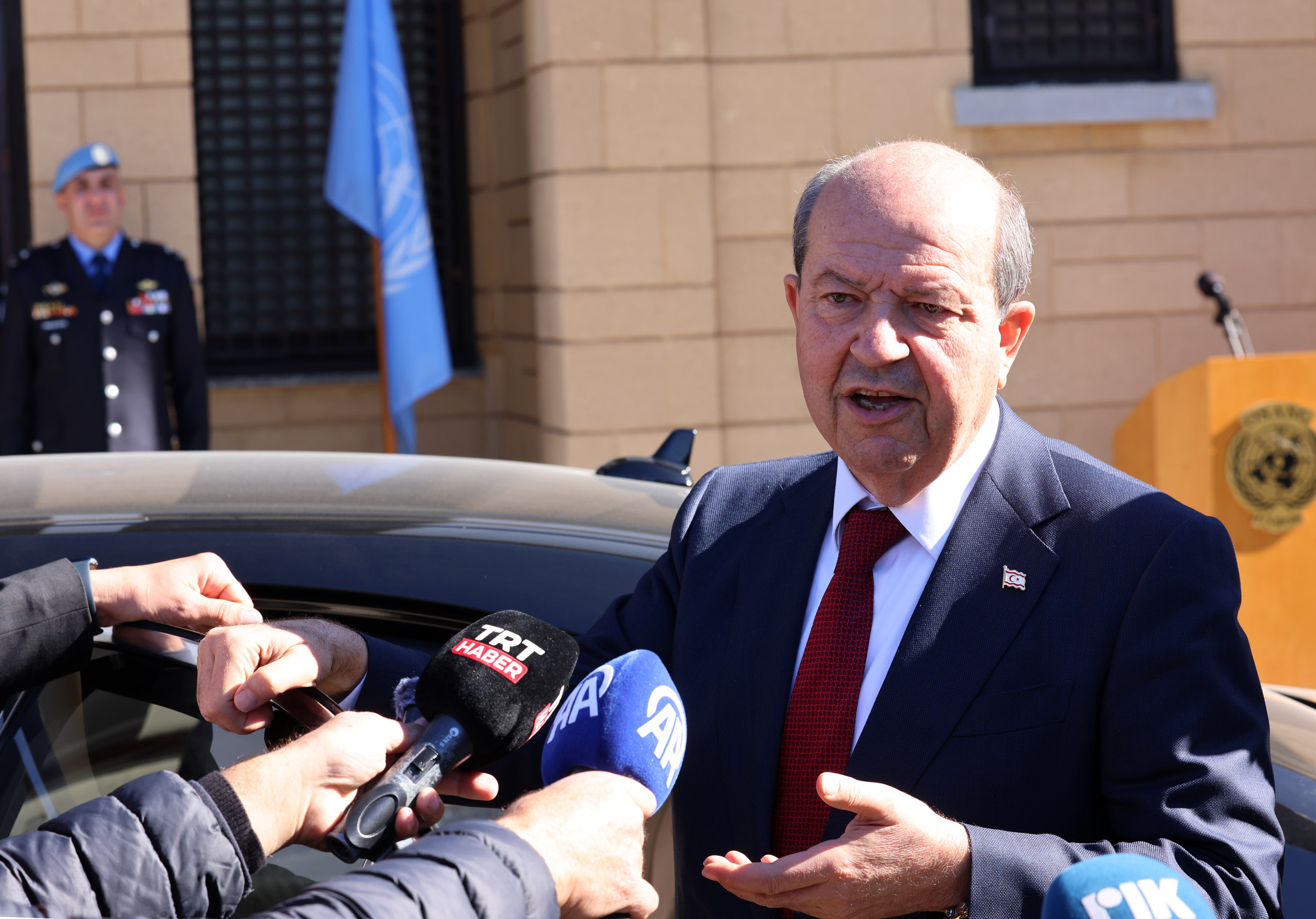Tatar has reiterated on Tuesday his dedication to the two-state solution for Cyprus during a recent meeting with Turkish House vice president of the foreign affairs committee, Mustafa Canbey, and the accompanying Turkish delegation. In a clear message to the international community, Tatar emphasised his efforts to increase the visibility of the Turkish Republic of Northern Cyprus (TRNC), highlighting the ongoing pursuit of recognition for the self-declared state.
During the meeting, Tatar underscored the significant turning point in Cyprus’ history, marking the “beginning of a new era” following Turkey’s 1974 military intervention. He stressed that the policy of two states is the path forward, asserting that Cyprus can no longer afford to waste time on unproductive negotiations.
“We are amid dynamic processes regarding the Cyprus issue,” said Tatar, pointing to the ongoing diplomatic engagement with international organisations such as the United Nations, the European Union, and various countries. Despite these efforts, Tatar expressed disappointment in the Greek Cypriot side, claiming that all opportunities for a solution have been rejected.
Tatar’s firm stance on the two-state solution aligns with Turkey’s broader vision for the future of Cyprus. He pointed out that the Turkish Cypriots’ struggle was part of a larger framework aimed at achieving lasting peace and cooperation between the two states on the island. He stressed that both the TRNC and Turkey are committed to this solution, with the presence of Turkish troops on the island seen as crucial for maintaining peace and stability.
Mustafa Canbey, speaking on behalf of Turkey’s support for the TRNC, emphasised the importance of international recognition for the breakaway region. He wished Tatar success in the upcoming Geneva talks and assured continued Turkish backing for the TRNC’s struggle for sovereignty.
As the political and diplomatic tug-of-war continues, Tatar’s words reflect the deepening divide and the determined push for the Turkish Cypriot state to be seen and recognised by the world. Whether the international community will respond remains to be seen, but for Tatar and his allies, the fight for recognition and peace is far from over.







Click here to change your cookie preferences